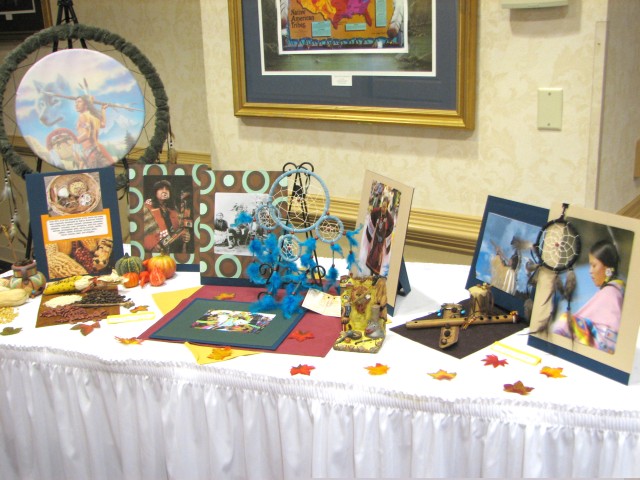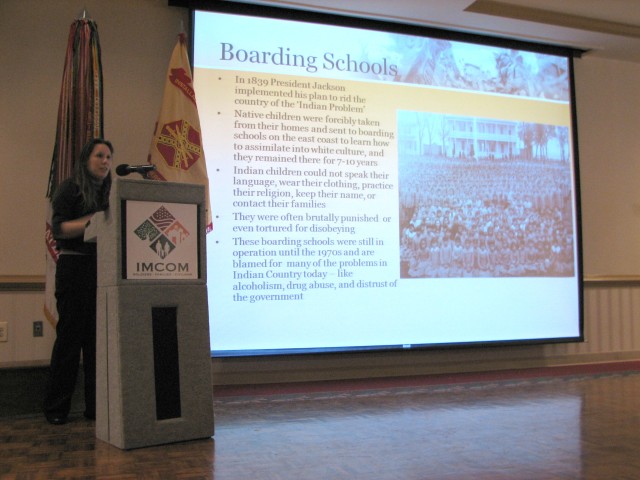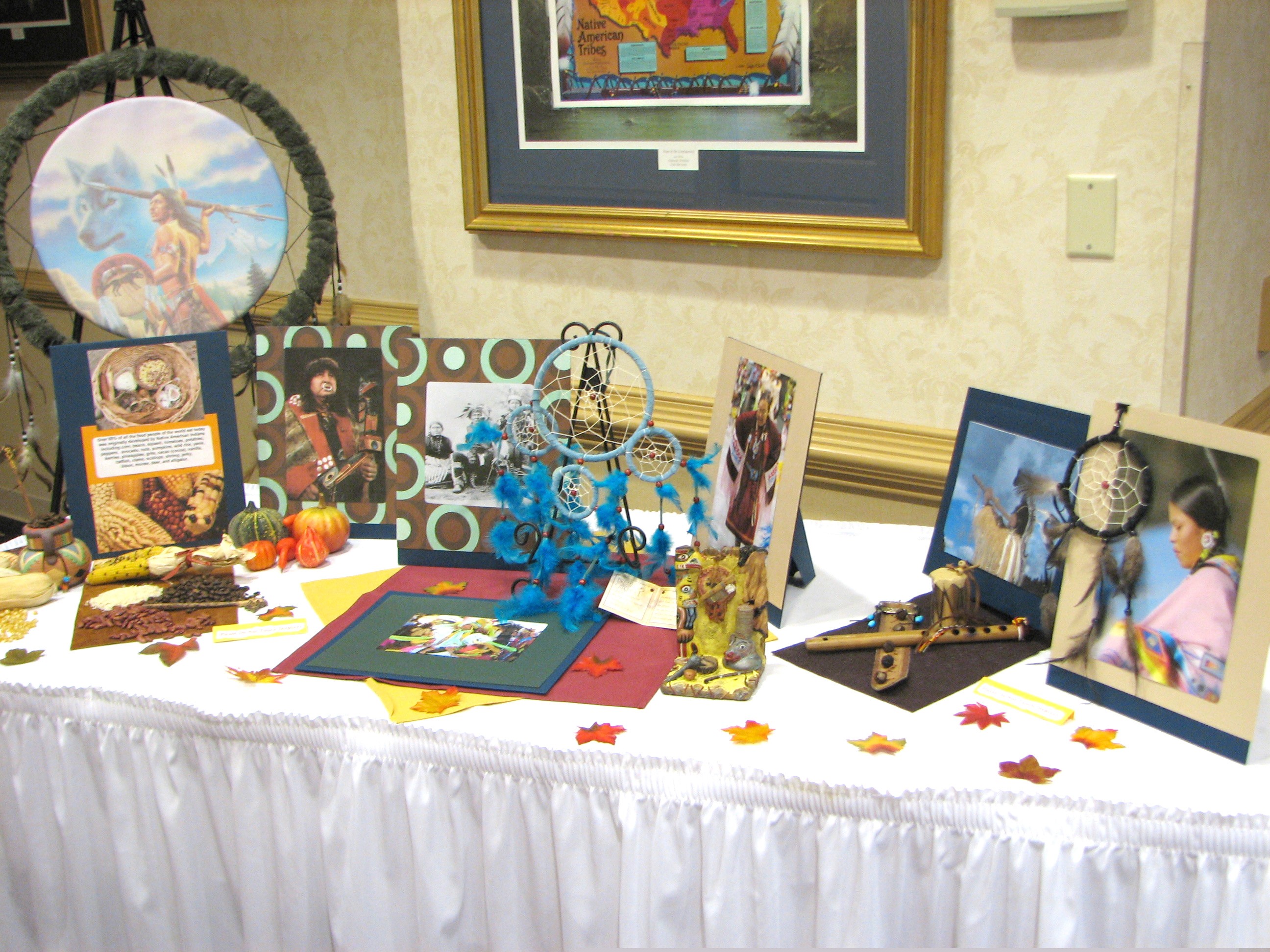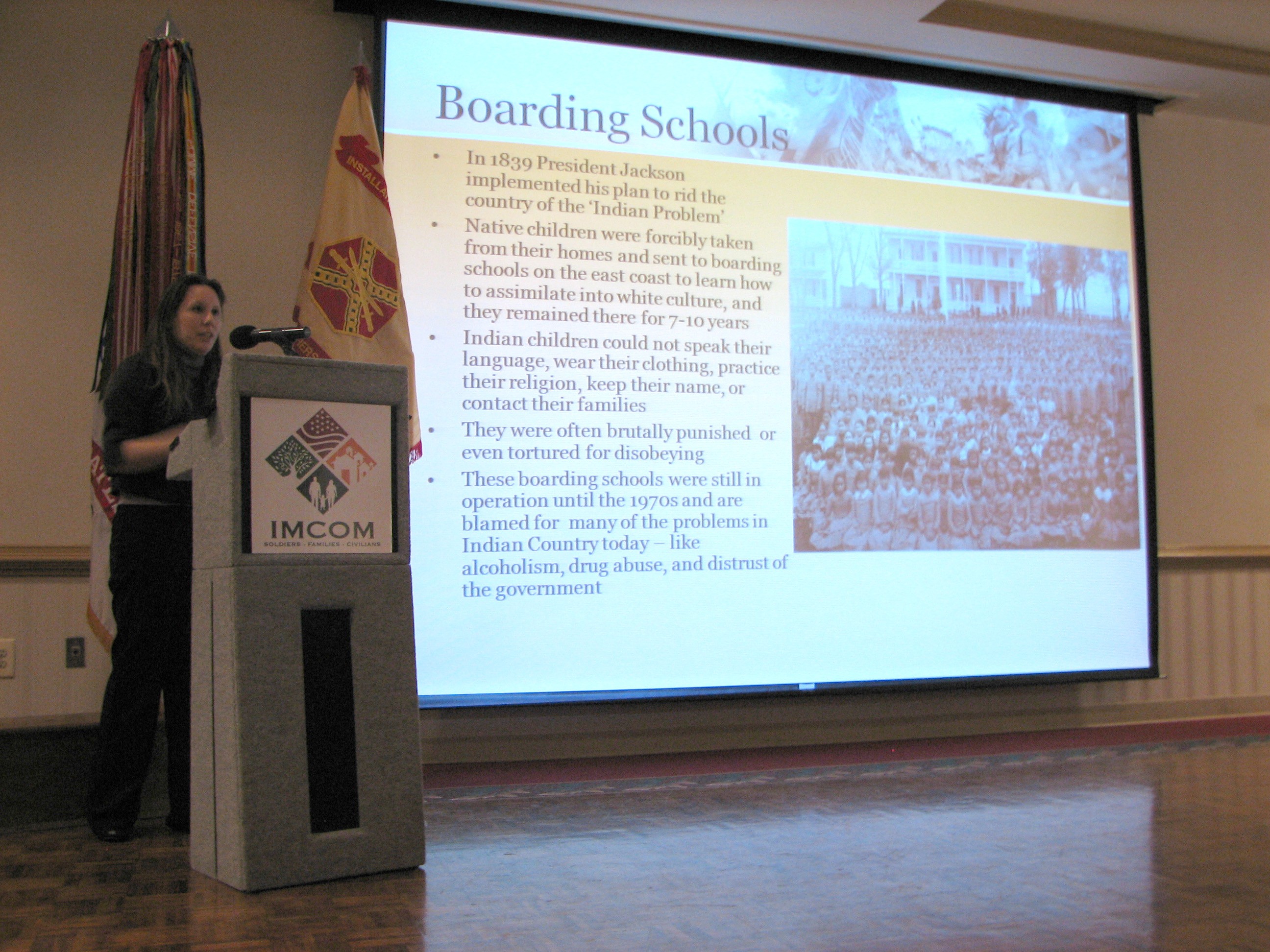To honor the diversity and heritage of Native Americans, members of the Fort McPherson and Fort Gillem community gathered at The Commons at Fort McPherson Nov. 9 to celebrate National American Indian Heritage Month.
The theme of the event was "Life is Sacred - Celebrate Healthy Native Communities."
Although many problems, such as alcoholism, drug use, loss of culture and government distrust, fill some reservations, guest speaker Erin Beavers Cochran, a museum educator at the Atlanta History Center, spoke of how these problems tend to overshadow other Native American communities.
"There are a lot of healthy communities," said Cochran, a descendant of the Bird Clan from the eastern band of Cherokee Indians.
Though people may be aware of problem communities, Cochran added most people "aren't aware of where problems came from."
To address the root of these problems, Cochran took attendees through a history of Native Americans on the continent.
"Depending on who you ask, they (Native Americans) may have been here 40 to 50 thousand years ago," she said.
Though ancient, Cochran said Native American cultures discovered and practiced things used in society today.
Native Americans took wild corn and bioengineered the corn used today, and also created artificial soil and sewage systems in their cities to keep away the plague and other diseases.
Politically, the Creeks, an Indian tribe found in Georgia, provided equal rights to men and women, and the Cherokee, another Georgian tribe, had a constitutional government.
Despite these advances, European settlements often treated Native Americans harshly, taking their land and heritage away, Cochran said.
In other cases, settlers tried to remove the uniqueness of their culture and turn them "white" by sending them to boarding schools to separate them from their heritage.
"Boarding schools ran until the 1970s and can be blamed for many problems of today - alcoholism, drug abuse and distrust of government," Cochran said.
Striped of their identities and removed from their culture and Families, many Native Americans turned to self medication to solve their problems, which led to issues that still exist, Cochran said.
However, despite setbacks, Cochran said Native American communities are working hard to rediscover themselves and solve these social problems.
In doing so, they benefit not only themselves, but other communities.
"People learn from each other; the more you learn about others the more you learn about yourself," Cochran said. "We're all a lot more alike than (we are) different."




Social Sharing